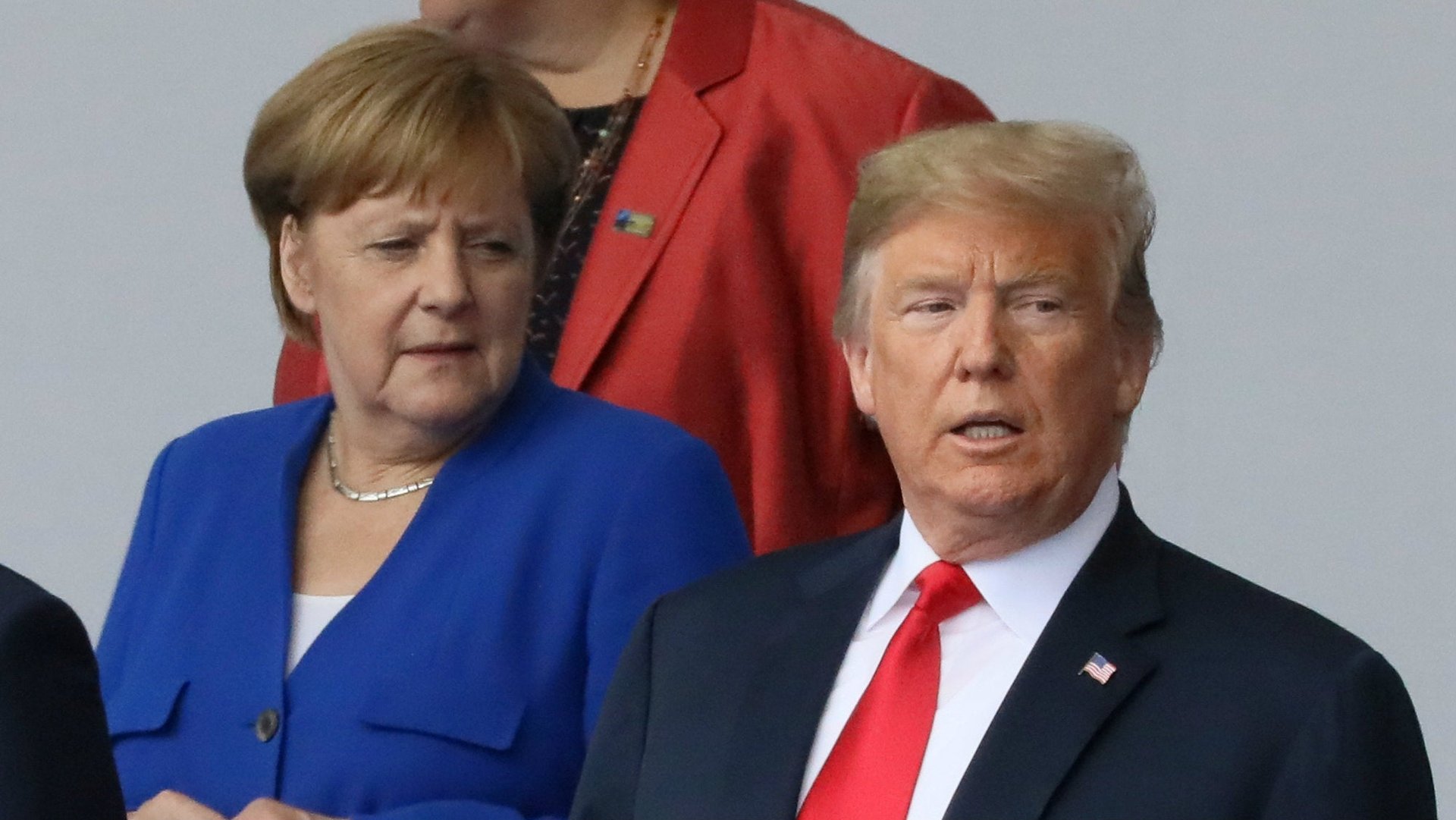The divide between the US and Europe is growing, just as Putin hoped
The dollar is arguably Washington’s most powerful peacetime weapon. But when Donald Trump ignored his EU partners and reapplied sanctions on Iran—undermining a nuclear treaty that European leaders believe in—he added to a long list of officials who resent this financial ammunition. What’s striking is that, this time, the complaints aren’t just coming from Moscow and Caracas, but allies in Berlin.


The dollar is arguably Washington’s most powerful peacetime weapon. But when Donald Trump ignored his EU partners and reapplied sanctions on Iran—undermining a nuclear treaty that European leaders believe in—he added to a long list of officials who resent this financial ammunition. What’s striking is that, this time, the complaints aren’t just coming from Moscow and Caracas, but allies in Berlin.
Last week, Germany’s federal minister for foreign affairs, Heiko Maas, acknowledged a growing rift between the US and Europe, calling for the latter to consider building a bigger military, creating its own version of institutions like the World Bank, and perhaps even prying its bank payment channels apart from the dollar-dominated network. Maas’s point: The US is no longer a reliable partner.
Widening the US/Europe rift would suit Vladimir Putin just fine. Instead of the US-led “unipolar” structure that’s been in place since the Cold War, the Russian president is striving for a world controlled by regional powers, according to Otilia Dhand, a senior vice president at Teneo Intelligence. In a fragmented, divided system, Russia would have a more powerful seat at the table.
Putin can’t get there through direct confrontation—western alliances may be cracking, but they still greatly overpower Russia. So it makes sense that he would instead meddle in elections, engage in “information warfare,” undermine the North Atlantic Treaty Organization (paywall), and aid politicians who are eager to split the EU apart. As Trump alienates even the US’s closest and most immediate partners, like the UK and Canada, you can also expect Russia’s cyber machine to get more active and sophisticated.
This is bad news for western powers. There may be nothing to stop the US and Europe from growing apart. But if the shift is exacerbated by Russian manipulation, the fallout could be messier and more dangerous than it needs to be.